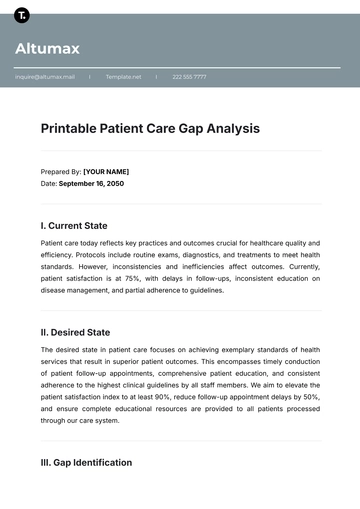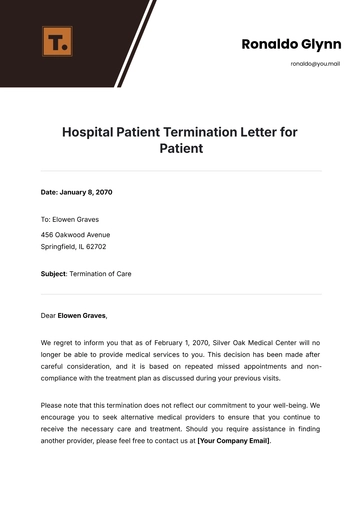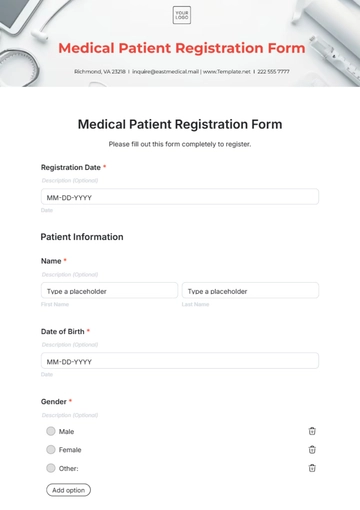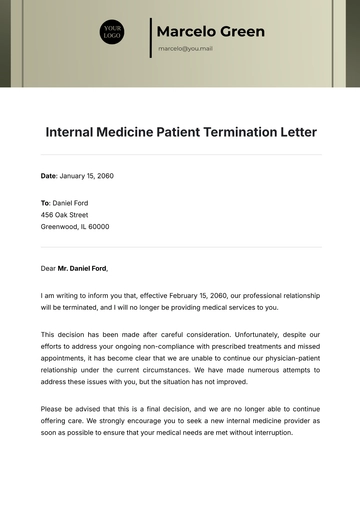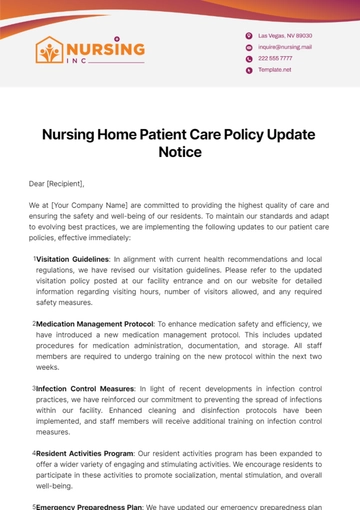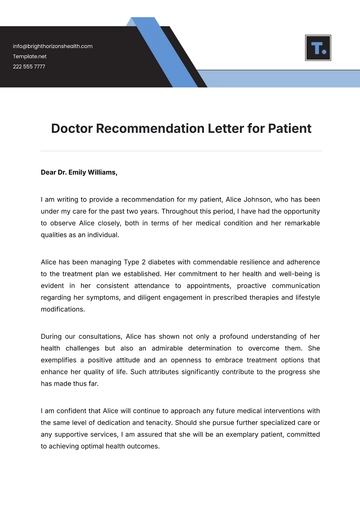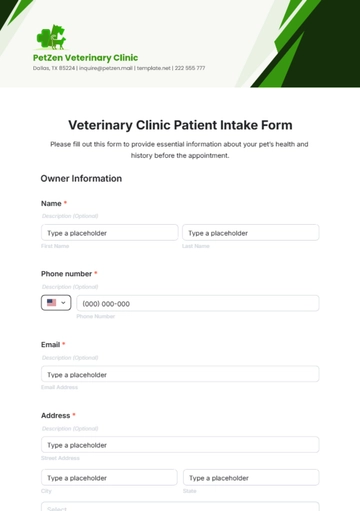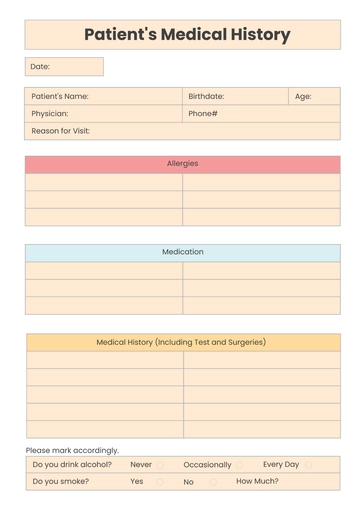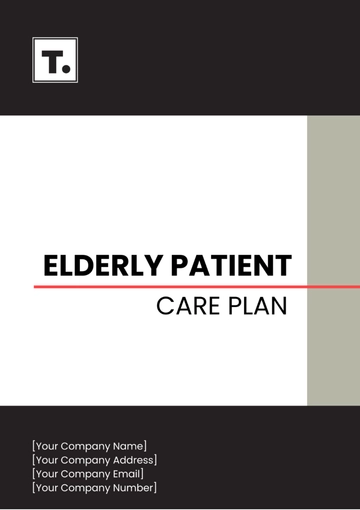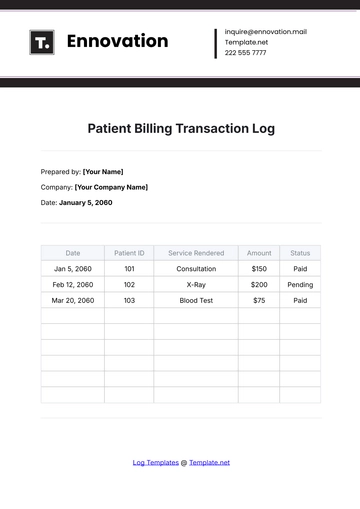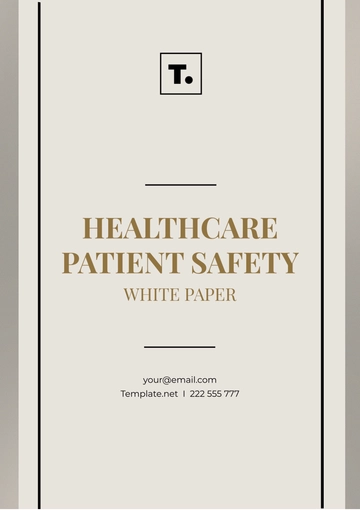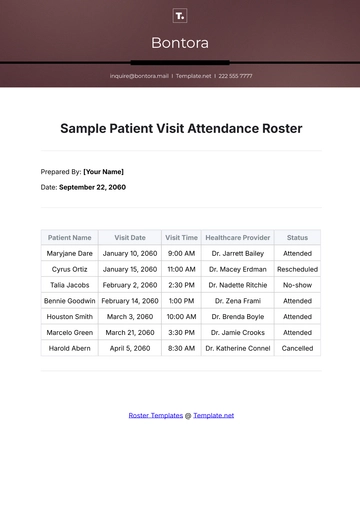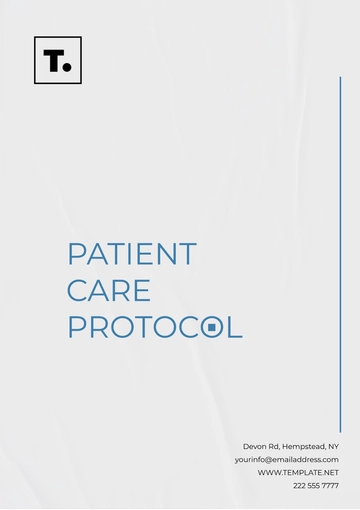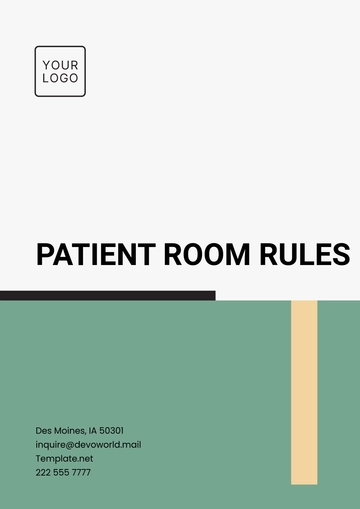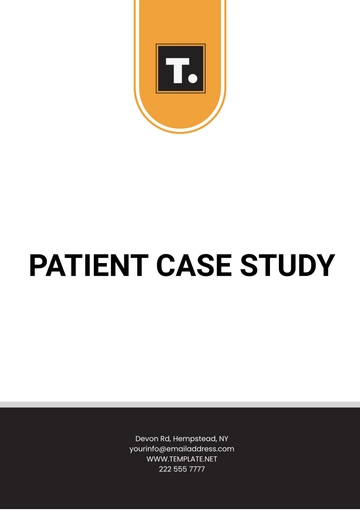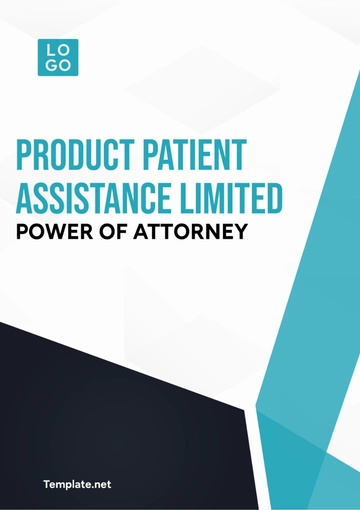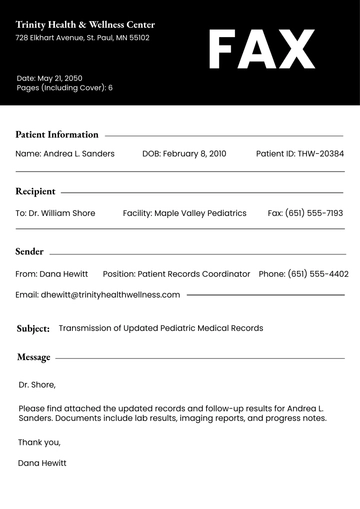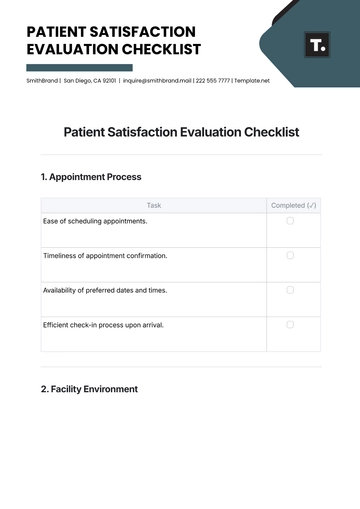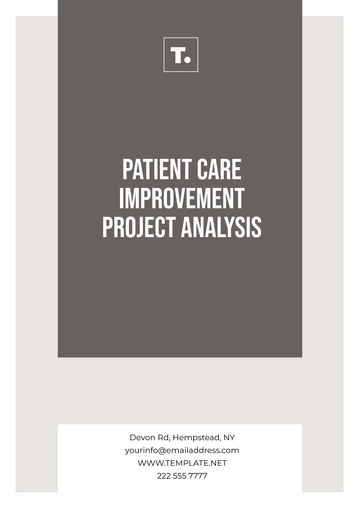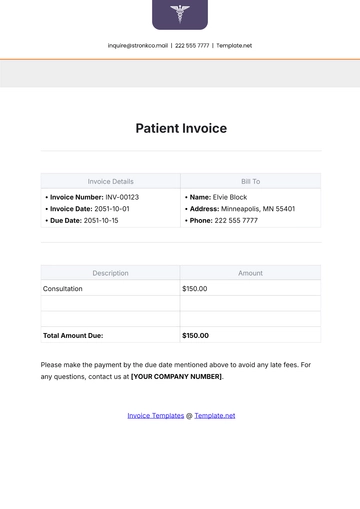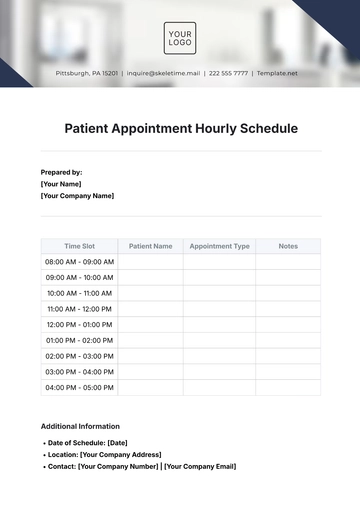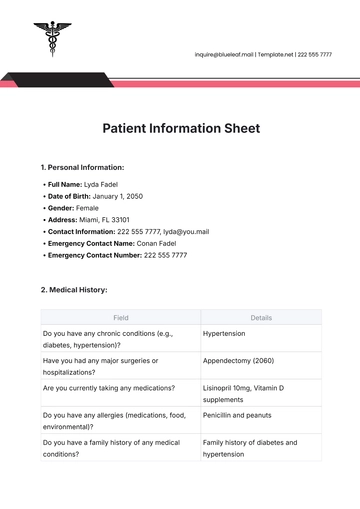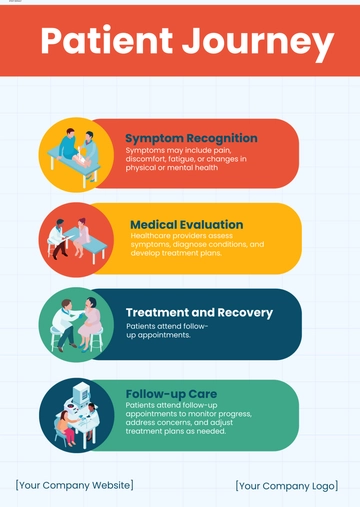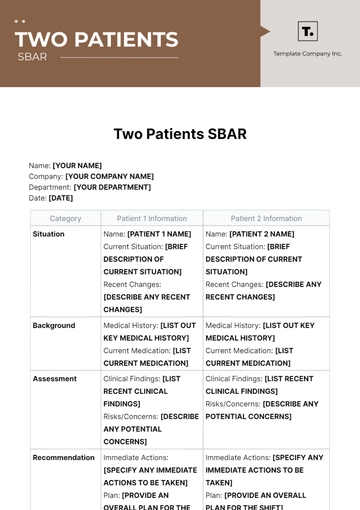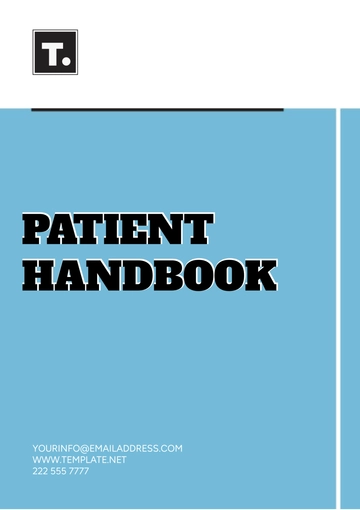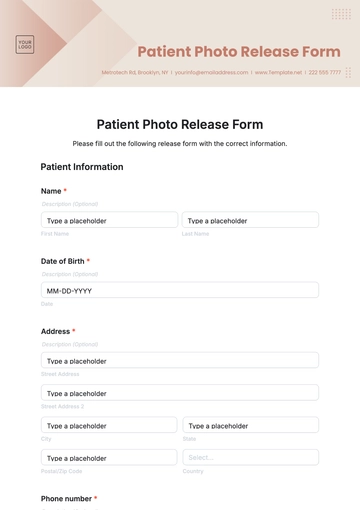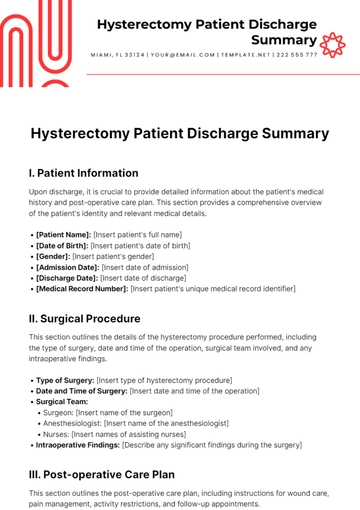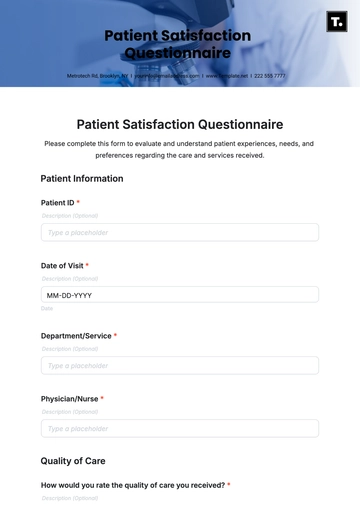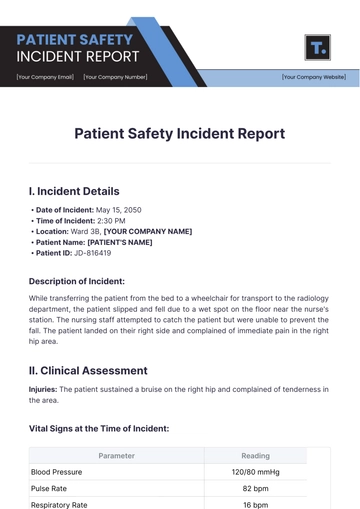Free Patient Care Protocol
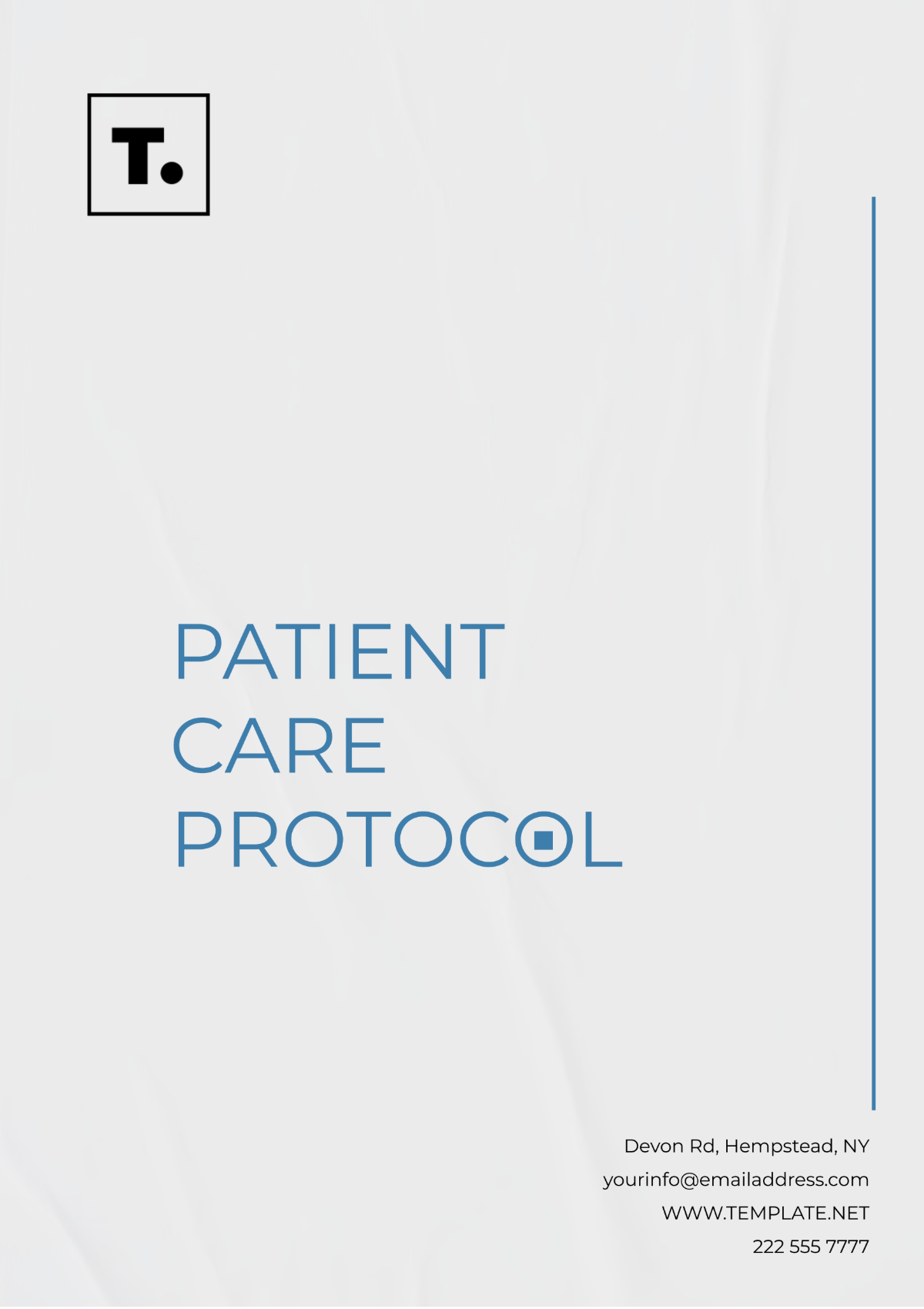
Prepared by: [YOUR NAME]
Email: [YOUR EMAIL]
Company Name: [YOUR COMPANY NAME]
Company Address: [YOUR COMPANY ADDRESS]
Introduction
In emergency situations, timely and effective care is critical to patient outcomes. This protocol is designed to provide healthcare professionals with standardized procedures to follow during emergencies, ensuring rapid assessment and intervention. The structured approach outlined herein aims to enhance the quality of care delivered while minimizing risks to patients.
I. Scope of the Protocol
This protocol applies to all emergency healthcare scenarios, including but not limited to:
Cardiac arrest
Respiratory distress
Trauma incidents
Allergic reactions
Stroke
II. Initial Assessment
Conduct a rapid assessment upon patient arrival. Use the following framework to guide the evaluation:
Step | Action | Timeframe | Responsible Party | Notes |
|---|---|---|---|---|
1. Patient Identification | Verify patient identity | Immediate | Healthcare Provider | Check wristband/ID |
2. Primary Survey | Conduct ABCs (Airway, Breathing, Circulation) | Within 1 minute | Emergency Nurse | Ensure airway is clear |
3. Vital Signs | Measure blood pressure, heart rate, and oxygen saturation | Within 2 minutes | Emergency Nurse | Document findings |
4. History Taking | Obtain brief medical history | Within 3 minutes | Emergency Physician | Focus on allergies/medications |
5. Secondary Assessment | Full physical exam | Within 5 minutes | Emergency Physician | Look for injuries/abnormalities |
III. Treatment Protocols
Implement the following treatment protocols based on the condition identified during the assessment:
Condition | Intervention | Medications | Monitoring | Follow-up Actions |
|---|---|---|---|---|
Cardiac Arrest | CPR and defibrillation | Epinephrine, Amiodarone | Continuous ECG monitoring | Advanced life support team notification |
Respiratory Distress | Administer oxygen and nebulizers | Albuterol, Atrovent | Pulse oximetry | Consider intubation if no improvement |
Trauma | Control bleeding, stabilize spine | IV fluids, pain management | Vital signs every 5 minutes | Consult trauma surgeon |
Allergic Reaction | Administer epinephrine | Diphenhydramine, Corticosteroids | Vital signs monitoring | Observation for at least 4 hours |
Stroke | Initiate stroke protocol | Thrombolytics (if applicable) | Neurological assessments | Transfer to stroke center if indicated |
IV. Documentation
Complete all required documentation as per hospital policy, ensuring accuracy and timeliness. Use the following checklist to confirm all necessary documentation is complete:
Documentation Type | Required By | Timeframe | Responsible Party | Notes |
|---|---|---|---|---|
Patient Care Record | Emergency Nurse | Within 10 minutes | Emergency Nurse | Include assessment findings |
Medication Administration | Emergency Nurse | Immediately after administration | Emergency Nurse | Record dosages and times |
Incident Report | Emergency Physician | Within 24 hours | Emergency Physician | Detail events leading to incident |
Conclusion
Following this Emergency Care Patient Care Protocol ensures that all healthcare professionals are equipped to provide swift and effective care during critical situations. By adhering to these standardized procedures, we can enhance patient safety and improve outcomes in emergency scenarios. Continuous training and periodic reviews of this protocol will further strengthen our response capabilities, ensuring preparedness for any emergency that may arise.
- 100% Customizable, free editor
- Access 1 Million+ Templates, photo’s & graphics
- Download or share as a template
- Click and replace photos, graphics, text, backgrounds
- Resize, crop, AI write & more
- Access advanced editor
Maximize your patient care efficiency with our customizable Patient Care Protocol Template available at Template.net. This editable resource simplifies documentation and ensures comprehensive care planning. Utilize the AI Editor Tool for seamless adjustments to fit your specific needs, enhancing workflow and patient outcomes. Perfect for healthcare professionals aiming for consistent, high-quality patient management.
